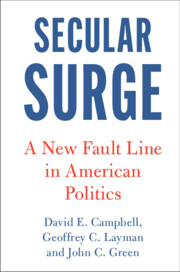As a new cohort of religious conservatives became major players in U.S. political discourse during the 1970s and 1980s, they expressed ambivalence about the political realm and often represented their religious motivations as simultaneously separate from politics and as justification for their political activism. Prominent conservative evangelical women drew on this ambivalence in specifically gendered ways, referencing their religious commitments as well as their roles as mothers, which they asserted both compelled them to speak out on political issues, and proved that these issues were not fundamentally political. Building on scholarship about women’s grassroots support in conservative movements, this article underscores the importance of women’s national leadership in the New Christian Right. It focuses on the career of singerturned- activist Anita Bryant, who offers a particularly instructive example due to her public and explicit transformation from representative symbol of American motherhood to outspoken political activist in the late 1970s. Within the context of a flourishing evangelical subculture and shifting political landscape, Bryant’s negotiations of her political authority exemplify conservative evangelical women’s ways of understanding their leadership in support of a platform that emphasized women’s domestic roles. It demonstrates how they invoked an existing tension between religious and political identification to expand the ideology of “traditional gender roles” without overstepping its bounds. More broadly, Bryant’s career offers insight into the importance of women’s national leadership in framing the rhetoric and priorities of the New Christian Right, including its central emphases on gender and its relationship with contemporary feminist movements.


